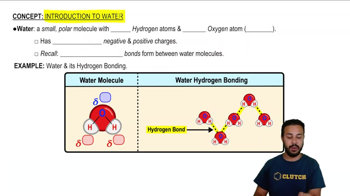Textbook Question
Answer questions 5 through 10 by choosing responses from the following:
a. ammonium ions
b. bicarbonate
c. calcium
d. chloride
e. hydrogen ions
f. magnesium
g. phosphate
h. potassium
i. sodium
j. water
Two substances secreted into the proximal convoluted tubules in exchange for sodium ions.
230
views




